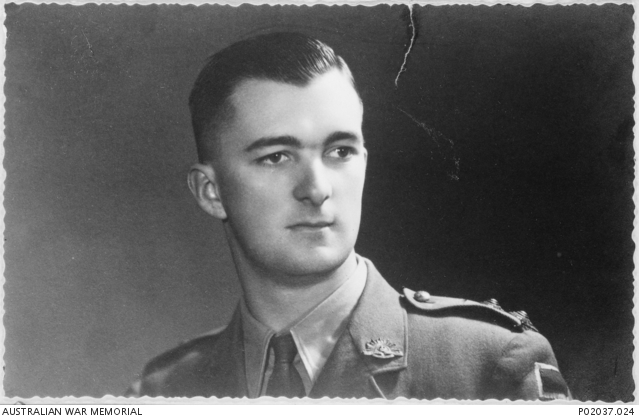Out in the Cold: Australia's involvement in the Korean War - Lieutenant Colonel Charles Green
Charles Hercules Green, Commanding Officer, 3rd Battalion, Royal Australian Regiment (3 RAR).
Charles Green, only 30 years old when he served and was killed in Korea, made a big impression on all those who came in contact with him. His death was met with grief among Australian soldiers. Not only had the Australian army lost a respected and skilled commander, but a man that troops liked and admired personally.
Green was described by his intelligence officer, Lieutenant (later Lieutenant Colonel) A. Argent as:
a tall, dark, sinewy man with the bearing, and unhurried deliberateness one usually associates with men of the land. Pressure never seemed to bother him. He had a fine touch and the presence of a natural leader. His command in Korea was always firm and sure. He always gave good, clear and concise orders. He kept well forward, in fact immediately behind the leading company group. After six weeks he had molded the battalion into a fighting unit.
Born in 1919, and raised in Swan Creek, NSW, Charlie Green joined the militia at 16. During the Second World War he earned his reputation, beginning as an infantry officer of the 2/2nd Battalion, serving in North Africa and Greece. After the German conquest of Greece he escaped to Palestine. He then served as Commander of the 2/11th Infantry Battalion in the Aitape-Wewak campaign in New Guinea, and was said to be the youngest commanding officer of an Australian battalion during the Second World War. For his service in that war he received the Distinguished Service Order, at the age of 25.
After returning to Australia and working as a farmer, Green married and had a daughter. When war broke out in Korea, he was appointed Commanding Officer of the 3rd Battalion, Royal Australian Regiment, in September 1950. Green replaced Lieutenant Colonel
F. S. Walsh, who had been CO of 3 RAR in the British Commonwealth Occupying Force (BCOF), Japan, but who did not have any operational command experience. Although he only had two weeks to train his men before they saw action in Korea, Green made good use of this time, and created a cohesive bond within the battalion. He was a private but caring commander, and is remembered most for the respect he quickly earned from people, and his exceptional leadership.
Green led his men through battles at Yongju, Kujin, and Chongju. After the action at Chongju on 29 October 1950, the troops rested nearby. At 6.10 pm the next day, the Chinese attacked the area, firing six high-velocity shells. The only person wounded was Green, who was resting in his tent. He was badly wounded by shrapnel in his stomach, and on 1 November 1950 in a nearby surgical hospital.
My hand and arm were covered with blood as I held him. I remember very clearly that the CO was conscious and kept repeating things like, "Cal, is the battalion OK?" "are the boys OK?" "Look after them Cal, they are good men. Look after them Cal." I heard him still speaking as the [ambulance] drove off.
Private Claude Boshammer
Charlie Green is buried in the United Nations War Cemetery in Pusan, South Korea. For his service in Korea, he was awarded posthumously the US Silver Star medal.
Lieutenant Colonel Charles Green, CO 2/11th Infantry Battalion, Wirui Beach, Wewak, New Guinea, September 1945.



